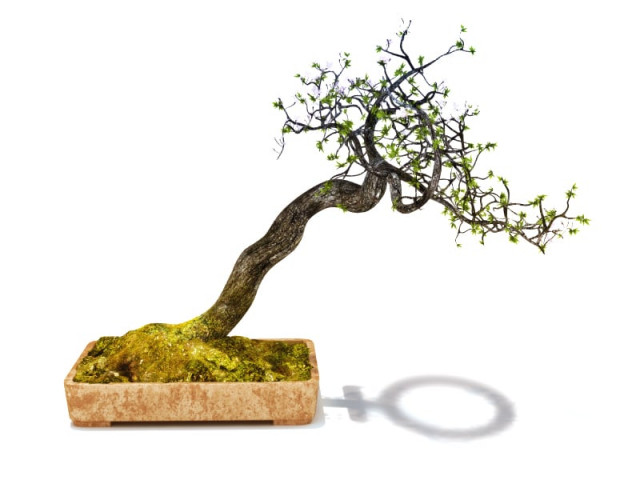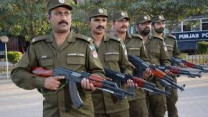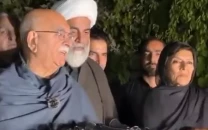Slow but steady?: Pakistani women in the public and political sphere
Studies show Pakistan still has a long way to go for achieving gender-equality.

Studies show Pakistan still has a long way to go for achieving gender-equality. DESIGN: FAIZAN DAWOOD
Former premier Benazir Bhutto, Foreign Minister Hina Rabbani Khar and National Assembly Speaker Fehmida Mirza are part of a small, but significant, number of women who have marked their place in the country’s political arena.
According to a study by the Planning Commission and endorsed by the United Nations, Pakistan has made remarkable progress in giving decision-making roles to women – however, the progress remains slow.
In fact, the 2010 MDG Report for Pakistan also noted that “the 22.2% participation share of women in the National Assembly is much better than that for any other Asian democracy and even for several Western democracies, including the UK and the USA, as Pakistan has had a female prime minister, Parliament speaker, and most recently, a female foreign minister.”
The study says that in Parliament elected for 2008-2013, there are 76 women legislators, of whom 16 were elected on general seats. The devolution plan of 2001 introduced by former president Pervez Musharraf’s regime has brought in a remarkable number of women at local government levels, with 33% reserved seats for women at all levels in the new system.
Yet, discrimination against women is still witnessed in the civil services.
Another study by the Planning Commission suggests that none of the federal ministries was setting aside 10% of its positions for women, as required under the Constitution. Based on data from 16 federal ministries and the Planning Commission itself, the report said there were only 112 women working in lower grade civil service positions against more than 2,500 men; at higher grades, the ratio was three women against 66 men. Most women were found in lower grade secretarial positions.

Meanwhile, women also remain under-registered as voters, even though they account for more than half the country’s population.
The number of registered women voters in Pakistan in 2008 was 356,037,78 compared to 453,065,40 men. The 2008 elections saw a drastic reduction in the number of women voters – with a 45% in Khyber-Pakhtunkhwa alone. The number of male voters also declined by 18%, whereas the number of women voters declined by 39%.

According to the report, this decline can be attributed to issues of security, recession, intimidation by militant forces and disappointment with the political system. Other factors, particular to women, include household responsibilities and socio-cultural constraints. It is more difficult for women to go out and vote as compared to men for several reasons, including security. There is still a shortage of women within the decision-making bodies of nearly all political parties. For example, there is only one woman on the 53-member central executive committee of the currently ruling Pakistan Peoples Party (PPP) and none on the 26-member executive committee of the Pakistan Muslim League-Nawaz.

The 2002 National Policy for Development and Empowerment of Women calls for removing hurdles to political participation by women and mandating the inclusion of women through merit in all decision-making bodies at all levels. However, most parties do not take the views of women specifically into account while drawing up election manifestos, and women who are consulted are those with an already strong status in the parties, often on the basis of their family background.
The data also shows low participation of women even after they are elected to local councils. According to one report, “Only one-third of elected women attend all or nearly all the meetings of the council.”
Published in The Express Tribune, December 25th, 2012.



















COMMENTS
Comments are moderated and generally will be posted if they are on-topic and not abusive.
For more information, please see our Comments FAQ